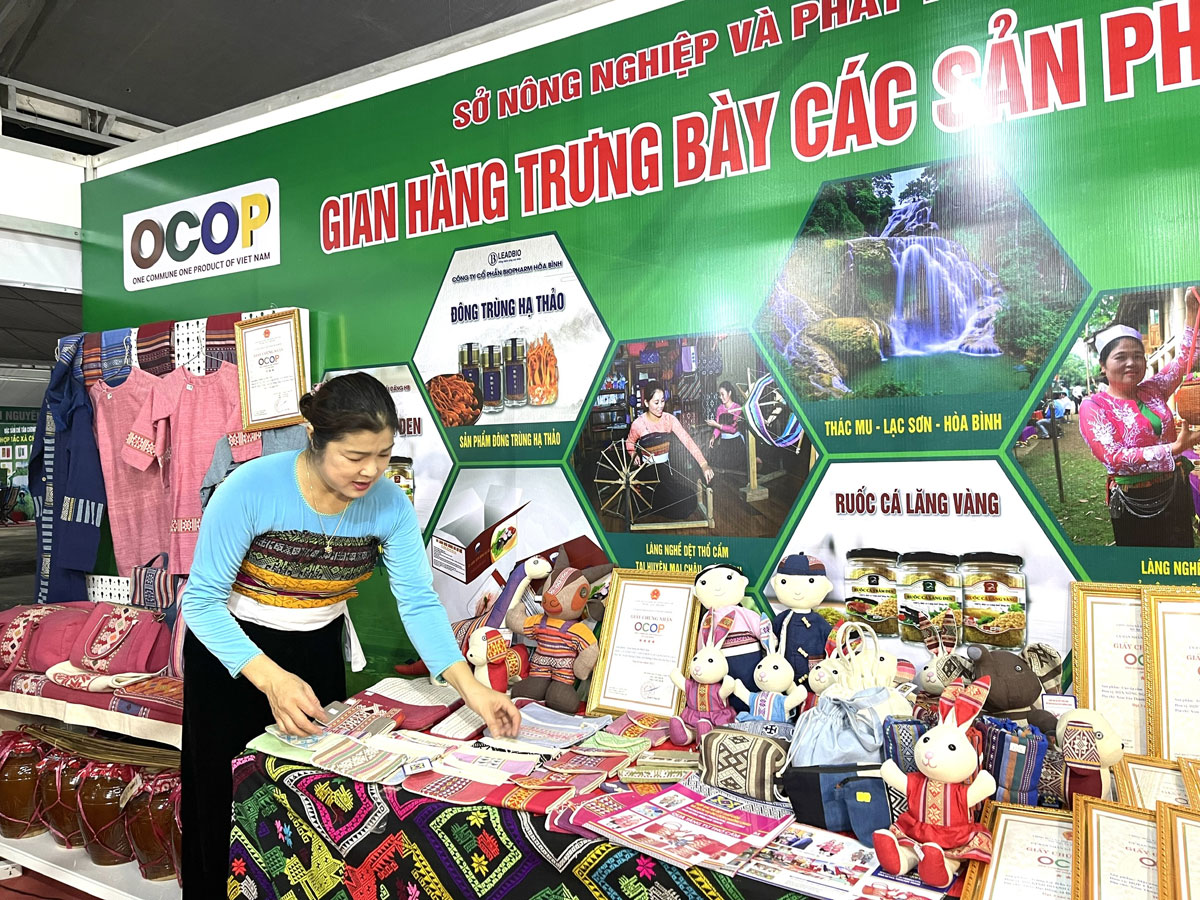
In order restore brocade weaving of the Thai ethnic group, with the support of the Japan International Cooperation Agency (JICA), the Chieng Chau Brocade Weaving and Tourism Services Cooperative was established in Chieng Chau commune (Mai Chau district) in 2009.
The Chieng Chau Brocade Weaving and
Tourism Services Cooperative has joined exhibitions
and fairs to promote its
products and expand the market.
The cooperative has continued its operation
after the JICA project concluded, and in 2013 it registered for official
establishment in line with the Cooperative Law.
Its Deputy Director Vi Thi Oanh said developing
the craft has created jobs for local residents, while preserving traditional
values. Its members have made efforts in production and
optimised local tourism advantages to popularise products to both domestic and
foreign tourists.
The cooperative has expanded its operation,
generating jobs for tens of labourers whose monthly income ranges from 3-4
million VND (123.5-164.67 USD) each. Chieng Chau brocade products have been known to
many people, especially foreigners, through fairs and exhibitions throughout
the country.
Moreover, the cooperative has coordinated with
local authorities and the farmers’ association of Chieng Chau hamlet to form a
Thai brocade weaving group within the cooperative, which aims to utilise the
existing resources, bring together weaving lovers, restore the traditional
craft, and raise income for local ethnic minority women.
After two years of operation, the group now
gathers 10 members whose skills have been improved significantly, contributing
to increasing productivity, fulfilling orders of domestic and foreign
customers. Most importantly, the members have enjoyed stable income and
improved living standards.
Pham The Anh, Chairman of the Mai Chau Farmers
Association, said the cooperative will further support the cooperative in
promoting the image of the group through exhibitions, fairs, television
channels and social networks.
As a land deeply intertwined with human history and Vietnam’s millennia-long journey of nation-building and defence, Hoa Binh is often revered for its epic tales and legends.
Residents of Hoa Binh boast a rich cultural identity, reflected in their unique language, traditional attire, customs, and folk melodies – described as "sweet as honey, clear as a mountain stream.”
Lac Son district’s Vu ban town held the 2025 Truong Kha temple festival on April 12–13 (the 15th–16th days of the third lunar month). Since its revival in 2019, the festival has been organised every three years, preserving valuable intangible heritage while meeting the community’s cultural and spiritual needs.
The clothing of women reflects the culture of the Muong, Thai, Tay, Dao, and Mong ethnic groups in the northern province of Hoa Binh.
Gongs hold a special place in the cultural and spiritual life of the Muong ethnic people in Hoa Binh province. More than musical instruments, they are an indispensable part of community rituals and collective memory, echoing through generations as a spiritual thread linking the past, present, and future.
Preserving and promoting the cultural values of the Muong ethnic group has become an urgent task in the current context, as many traditional values face the risk of fading away. This effort requires not only protecting the cultural identity but also eliminating outdated customs and developing a modern cultural lifestyle, contributing to sustainable values for the Muong community in Hoa Binh province.
The Muong ethnic culture, deeply rooted in Vietnam’s mountainous north, continues to be preserved and revitalised by dedicated individuals and communities determined to safeguard their ancestral identity.



